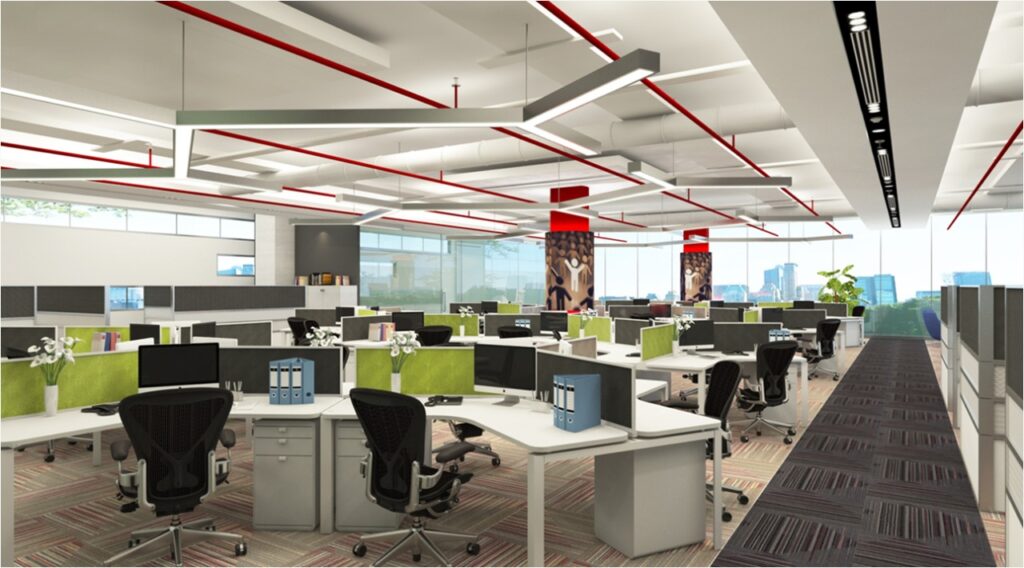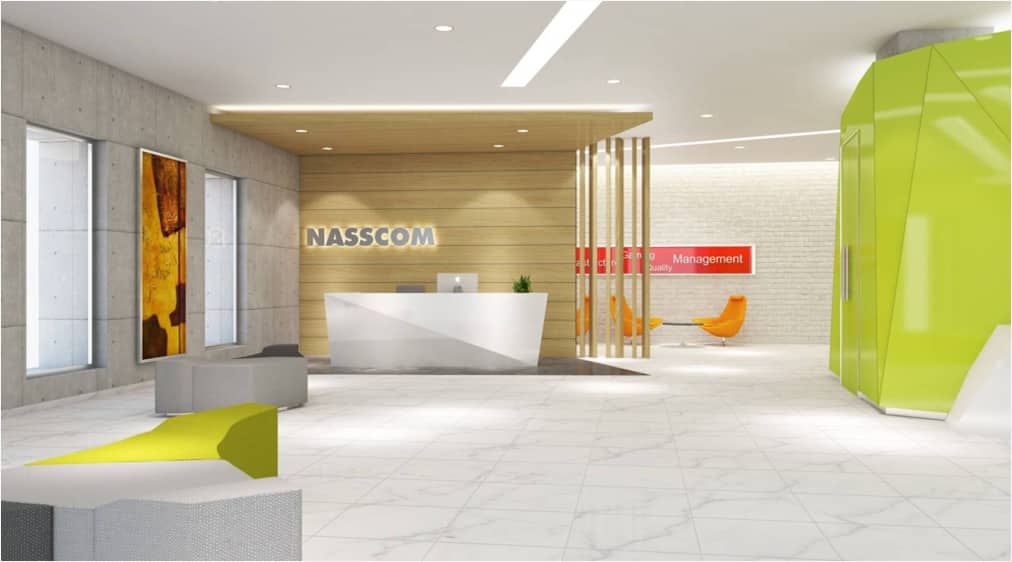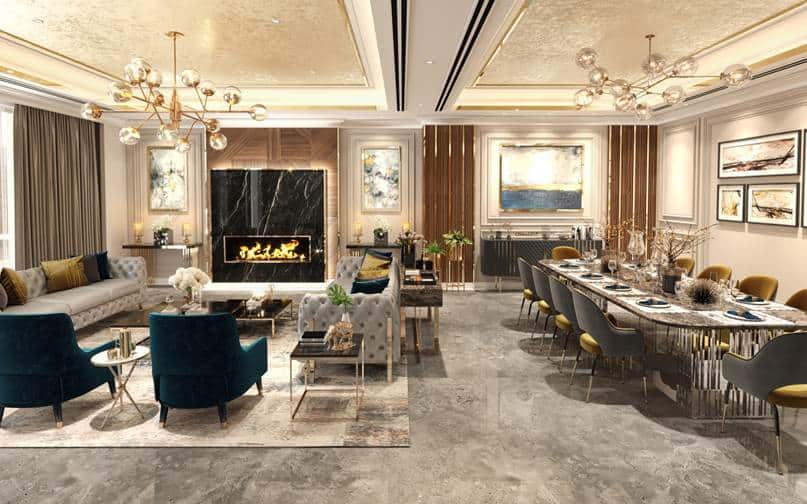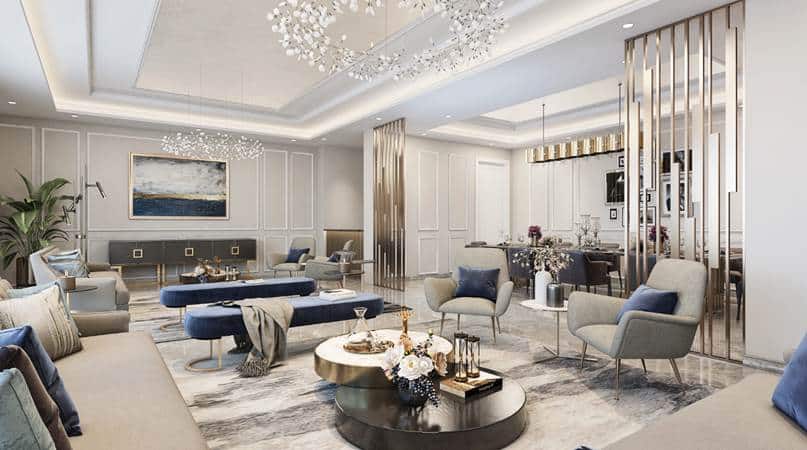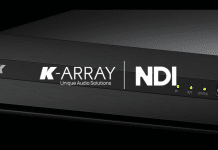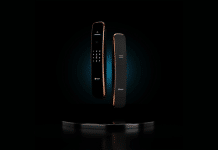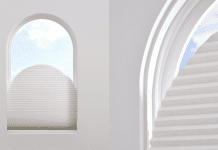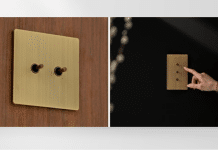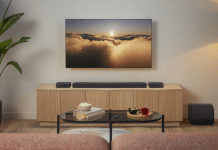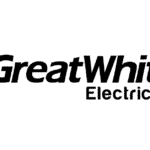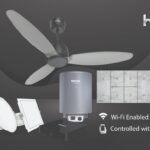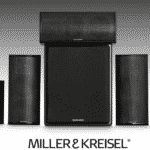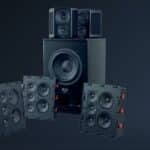
“As automation takes away the dependency on human beings , it is the way forward for most working professionals!”– says Ar. Sonali Bhagwati.
A building management system is also known as a building automation system is a computer-based control system installed in buildings that control and monitor the building’s mechanical and electrical equipment such as HVAC, lighting, fire systems, security systems, elevators etc. These are used in larger projects as they help save energy and offer improved efficiency of systems.
“Automation in the building industry started many years ago with BMS(building management system ) being used mostly in commercial buildings. Automation in homes came much later as homes were of a different scale and needed a different approach. Along with energy-saving, it needed to address the needs and comforts of the user.
Automation in homes started with control of simple appliances but with the advancement of the electronic industry, it can now control any equipment installed in the home that can talk to the central hub”, says Ar. Sonali Bhagwati, President, DesignPlus Architecture.
“In a typical urban nuclear family with all adults working and reduced domestic help, automation started playing an important role. For example, a VDP enables the homeowner to remotely see who is at the door and grant access if required. It aims to ease life by enabling chores which would otherwise require a human being to do”, she adds.
Who(consumer groups) are opting for smart homes the most?
It’s mainly the urban nuclear families that are opting for home automation. Earlier it was the prerogative of the wealthy who could afford to install the expensive hub and fancy equipment. It was more a status symbol and an element of luxury. But now like the Maruti car, it has come to the mid-market segment and basic automation related to overall controls and security systems is used extensively.
What according to you are the must-have smart home products in today’s contemporary homes?
According to me, safety and security is of prime importance. Hence, video door phones, biometric locks/CCTV are important. Then comes energy control. And lastly the comfort factor.
What role does system integrators play when it comes to designing a smart home? How important is their role?
An integrator plays a vital role in home automation. There are several products in a home from various manufacturers like lighting, HVAC, curtain motors, fire alarm, CCTV etc., and system integrators integrate all the devices into a hub/control system, which is quite a crucial task. Without an integrator, each system remains independent and would require separate controls. This would be like having 10 remotes, each one for different controls. The integrator combines all these into a single digital ‘remote ‘ on the phone.
Products of which category (lighting, security, entertainment etc.) witness maximum demand when it comes to integrating smart home devices while doing the interiors? Why?
The most popular products being used in smart homes today are:
… lighting
… HVAC
… curtain control
… entrance door security
… music
… home theatres.
These address the basic needs of most users. Lighting controls enable different moods through the layering of lights. The AC can be turned on/ off or temperature-controlled remotely. Curtains can be programmed to open and close on set timings. Access control and CCTV can help ensure the utmost safety of a house. Music can be zoned in various areas of the house enabling different users to play different genres. Recently, home theatre and home entertainment systems are gaining immense popularity as well.
What according to you are the major benefits of Smart & connected homes in the current “tech-savvy-era”?
In today’s nuclear urban families, where domestic help is limited, automation has become an integral part of their lives. Programming a washing machine, switching on the oven to have the roast ready at a certain time to getting floors vacuum-cleaned in your absence, are some of the aspects that are getting popular among the tech-savvy millennials. Home automation is all about reducing manual chores.
How would you define the current demand for smart home integrations?
The current demand for home automation is rapidly penetrating the mid-market segment. Most homeowners aspire to have some basic smart features like lighting controls, HVAC and security controls. But expensive systems from brands like Crestron, which requires extensive cabling etc, might be still beyond the budget. Hence simple Wi-Fi-based systems are preferred which can be retrofitted.
In which sector(hospitality, commercial, residential), according to you, traditional devices and techniques are getting rapidly displaced to make room for smart devices and systems, aided with the latest technologies? And why?
All the segments are moving towards automation. It is no longer a luxury. However, each building category requires different solutions. A commercial building with smart elevators, lighting and HVAC controls in public areas can save a tremendous amount of energy. The same goes with integrating solar power. Automation takes away the dependency on a human being for performing routine tasks.
However, in residential properties, the emphasis is more on comfort and security than energy saving.
Do you see any challenging factor(economic, social, environmental etc.) that has the strong potentiality to restrain the smart home industry? What, according to you, are the possible solutions?
Besides the economic factor, I don’t see any factors to restrain this industry. No matter what social background one is from, everyone uses digital media. Today, everyone aspires for a smart home, a smart office, smart retail, smart public space and essentially a smart life. It’s only limited by what one can afford.
How do you foresee the Smart home industry 5 years down the line?
The phrase “work for the masses and eat like the classes’ is appropriate for this industry. Simple, easy and economic systems are the future. Like the Maruti car, it’s the aspiration of the common man. Air Conditioning was a luxury 25 years ago, but today it’s a part and parcel of most homes. Similarly, I believe, the luxury of today will be the necessity of tomorrow.



